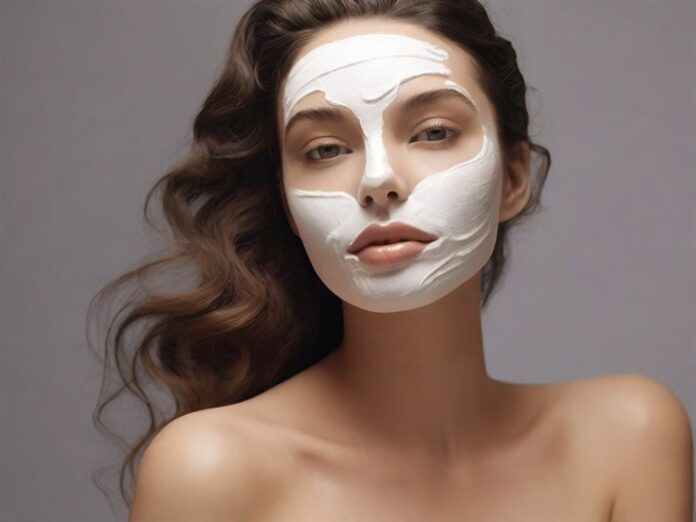In the pursuit of radiant, youthful skin, few techniques rival the transformative power of exfoliation. It’s the skincare secret that unveils smoother, brighter skin by shedding away dull, dead cells and revealing the fresh, luminous complexion beneath. However, with the multitude of products and methods available, navigating the world of exfoliation can be overwhelming. Fear not! In this comprehensive guide, we embark on a journey to demystify exfoliation, equipping you with the knowledge and insights needed to master this essential skincare ritual.
From understanding the different types of exfoliation to choosing the right products for your skin type and concerns, we’ll explore every facet of this transformative practice. Whether you’re a novice seeking to incorporate exfoliation into your routine or a seasoned skincare enthusiast looking to optimize your regimen, this guide has something for everyone.
Join us as we delve deep into the science, benefits, and techniques of exfoliation, empowering you to unlock your skin’s natural radiance and achieve the glowing complexion you’ve always dreamed of. It’s time to embark on a journey towards healthier, happier skin and embrace the transformative power of exfoliation.
In This Article
- 1 Mastering Exfoliation for Radiant Skin
- 1.1 Understanding Exfoliation
- 1.2 Mechanical Exfoliation
- 1.3 Chemical Exfoliation
- 1.4 Choosing the Right Exfoliant
- 1.5 Frequency of Exfoliation
- 1.6 The Importance of Sun Protection
- 1.7 DIY Exfoliation Recipes
- 1.8 Incorporating Exfoliation into Your Skincare Routine
- 1.9 Professional Exfoliation Treatments
- 1.10 Frequently Asked Questions About Mastering Exfoliation for Radiant Skin
- 2 How often should I exfoliate, and can I overdo it?
- 3 Can I use exfoliants if I have sensitive skin?
- 4 Should I exfoliate in the morning or evening?
- 5 Can I make my own exfoliating scrubs at home?
Mastering Exfoliation for Radiant Skin
Understanding Exfoliation
Exfoliation is the cornerstone of any effective skincare regimen, serving as the catalyst for cellular renewal and rejuvenation. By sloughing away dead skin cells from the skin’s surface, exfoliation unveils a smoother, brighter complexion while stimulating collagen production for firmer, more youthful-looking skin. Broadly categorized into mechanical and chemical methods, exfoliation offers versatile solutions tailored to individual skin types and concerns.
Mechanical Exfoliation
Mechanical exfoliation involves the physical removal of dead skin cells through abrasive substances or tools. Facial scrubs, brushes, and sponges are common examples of mechanical exfoliants, working to manually dislodge debris and impurities from the skin’s surface. While effective, it’s essential to exercise caution to prevent excessive friction and irritation, particularly for those with sensitive or delicate skin.
Chemical Exfoliation
Chemical exfoliation harnesses the power of acids, enzymes, or other chemical compounds to dissolve dead skin cells and promote cellular turnover. Alpha hydroxy acids (AHAs) such as glycolic acid and lactic acid, and beta hydroxy acids (BHAs) like salicylic acid are popular choices known for their ability to penetrate deeper into the skin, targeting stubborn congestion and refining the skin’s texture. Unlike mechanical exfoliation, chemical exfoliants work more gently and efficiently, making them suitable for all skin types, including sensitive skin.
Choosing the Right Exfoliant
Selecting the appropriate exfoliant is pivotal in achieving optimal results while minimizing the risk of irritation or adverse reactions. Consider factors such as skin type, sensitivity, and specific concerns when choosing between mechanical and chemical exfoliants. Those with sensitive skin may gravitate towards gentler options like enzyme-based exfoliants or mild AHAs, while individuals with oily or acne-prone skin may benefit from the pore-purifying properties of BHAs.
It’s also crucial to pay attention to the concentration and formulation of exfoliating products. Higher concentrations of active ingredients may deliver more intensive results but also pose a greater risk of irritation, especially for those with reactive skin. Additionally, opt for formulations that are free from harsh chemicals, fragrances, and abrasive particles, prioritizing products that promote skin health and longevity.
Frequency of Exfoliation
While exfoliation is undeniably beneficial, moderation is key to preventing over-exfoliation and subsequent damage to the skin barrier. The ideal frequency of exfoliation varies depending on individual skin characteristics and tolerance levels. As a general guideline, individuals with normal to oily skin can exfoliate 2-3 times per week, while those with dry or sensitive skin may opt for once a week or even less frequently.
Observing how your skin responds to exfoliation is paramount in determining the appropriate frequency and intensity of treatment. Signs of over-exfoliation, such as redness, irritation, and increased sensitivity, should prompt a reduction in frequency or a switch to milder exfoliants to allow the skin to recover and rebuild its natural defenses.
The Importance of Sun Protection
Exfoliation can heighten the skin’s sensitivity to UV radiation, making sun protection an indispensable step in any exfoliation regimen. UV exposure not only exacerbates the risk of sunburn and skin damage but also undermines the benefits of exfoliation by promoting premature aging and hyperpigmentation. Incorporate a broad-spectrum sunscreen with an SPF of 30 or higher into your daily skincare routine, applying it generously and reapplying as needed, especially after exfoliation or prolonged sun exposure.
DIY Exfoliation Recipes
For those inclined towards natural skincare solutions, DIY exfoliants offer a cost-effective and customizable alternative to commercial products. Common kitchen ingredients such as sugar, coffee grounds, oatmeal, and baking soda can be combined with nourishing oils, honey, yogurt, or fruit extracts to create indulgent exfoliating treatments. Not only do these DIY recipes effectively slough away dead skin cells, but they also deliver additional benefits such as hydration, antioxidant protection, and soothing relief for irritated skin.
When experimenting with DIY exfoliants, it’s essential to exercise caution and perform a patch test on a small area of skin to assess compatibility and sensitivity. Additionally, avoid using overly abrasive or harsh ingredients that may cause micro-tears or damage to the skin’s protective barrier. When in doubt, consult with a skincare professional or dermatologist for personalized recommendations tailored to your skin’s needs.
Incorporating Exfoliation into Your Skincare Routine
To maximize the benefits of exfoliation, it’s essential to integrate it seamlessly into your existing skincare regimen. Begin by cleansing the skin thoroughly to remove surface impurities and makeup residue, preparing it for optimal exfoliation. Next, apply the chosen exfoliant to damp skin, gently massaging it in circular motions to ensure even distribution and coverage.
Exercise caution around delicate areas such as the eyes and lips, avoiding direct contact with abrasive exfoliants to prevent irritation or injury. Allow the exfoliant to remain on the skin for the recommended duration, typically 1-2 minutes for chemical exfoliants or as specified by the product instructions. Rinse thoroughly with lukewarm water to remove the exfoliant residue, then pat the skin dry with a soft towel.
Follow up with a soothing toner to rebalance the skin’s pH levels and remove any remaining traces of impurities. Hydrate and nourish the skin with a lightweight, non-comedogenic moisturizer to seal in moisture and support the skin’s natural barrier function. For added hydration and protection, consider incorporating a facial oil or serum enriched with antioxidants, vitamins, and botanical extracts to promote skin health and vitality.
Consistency is key when it comes to exfoliation, so aim to incorporate this step into your skincare routine regularly. However, be mindful of your skin’s response and adjust the frequency and intensity of exfoliation as needed to maintain balance and harmony. Remember that skincare is not one-size-fits-all, so listen to your skin’s needs and tailor your routine accordingly for optimal results.
Professional Exfoliation Treatments

In addition to at-home exfoliation, professional treatments offer advanced solutions for addressing specific skin concerns and achieving transformative results. Chemical peels, microdermabrasion, dermaplaning, and laser resurfacing are among the many in-office procedures available, each tailored to target different skin issues and deliver visible improvements in texture, tone, and overall complexion.
Consultation with a licensed skincare professional, such as a dermatologist or certified esthetician, is essential to determine the most suitable treatment for your unique skin type, concerns, and goals. During the consultation, the skincare expert will assess your skin’s condition, discuss your skincare history and preferences, and recommend personalized treatment options tailored to address your specific needs.
Professional exfoliation treatments offer several advantages over at-home methods, including deeper exfoliation, enhanced efficacy, and the supervision of trained professionals. Additionally, these treatments may incorporate specialized techniques and technologies to deliver superior results while minimizing discomfort and downtime.
Conclusion
Exfoliation is a transformative skincare practice that holds the key to unlocking your skin’s radiant glow and unleashing its full potential. By understanding the fundamentals of exfoliation and embracing a personalized approach tailored to your skin’s needs, you can achieve a smoother, brighter, and more youthful complexion with confidence and ease.
Whether you prefer mechanical or chemical exfoliants, DIY treatments or professional procedures, the key is to approach exfoliation with mindfulness, moderation, and respect for your skin’s natural balance. By incorporating exfoliation into your skincare routine regularly and complementing it with nourishing products and sun protection, you can embark on a journey towards healthier, happier skin that radiates with vitality and luminosity.
Remember that skincare is not just about achieving surface-level beauty but nurturing and cherishing the skin as a reflection of your overall health and well-being. So, embrace the power of exfoliation, and let your skin shine with the brilliance it deserves. Unlock your glow and reveal the radiant, confident version of yourself that’s been waiting to emerge.





